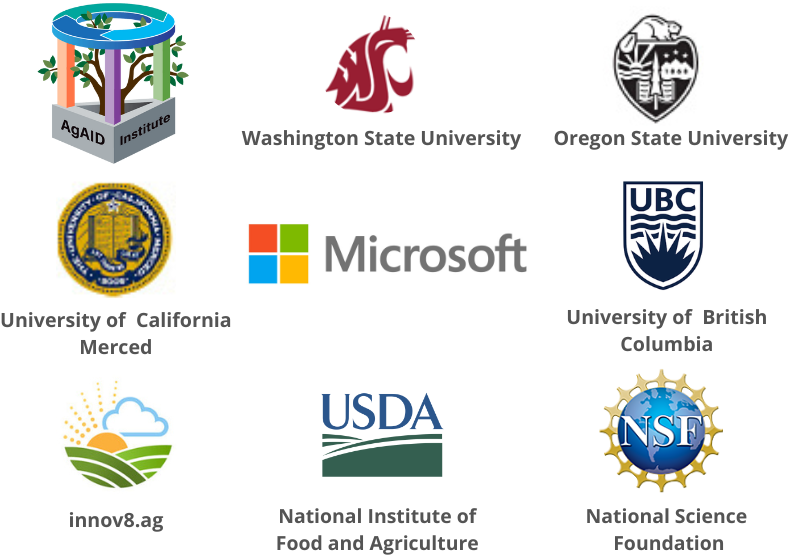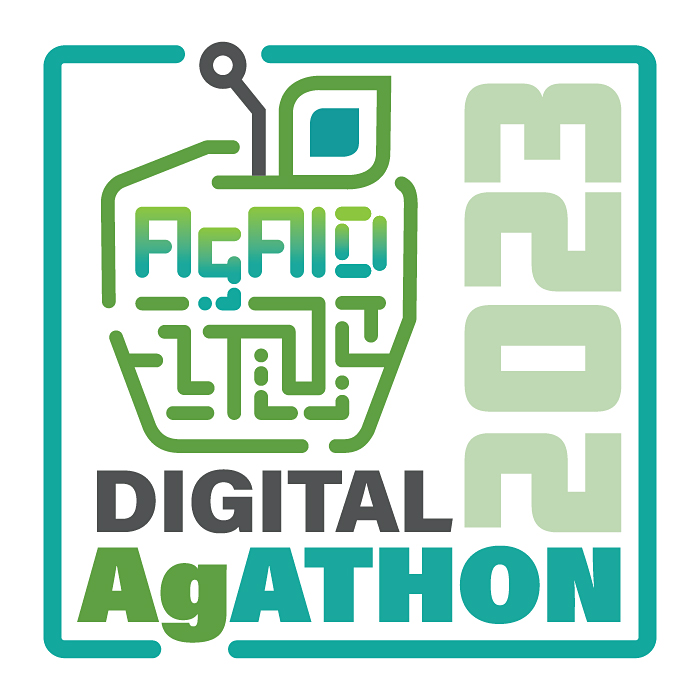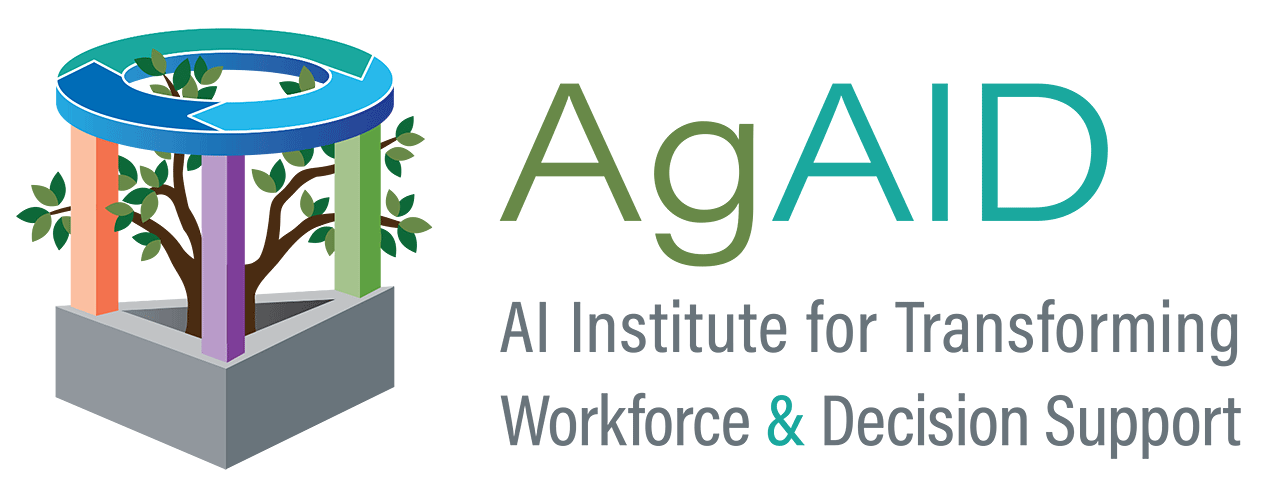
About
The AgAID Institute is a multi-disciplinary, collaborative effort involving faculty and scientists with expertise on a diverse range of areas in computer science, agriculture and agricultural outreach. Our team includes horticulturists and agricultural engineers, as well as experts in many aspects of computer science, AI, human-computer interaction and water policy. Our mission is broad, encompassing specialty crops up and down the West Coast, with Washington’s tree fruit and grape crops as a major focus.
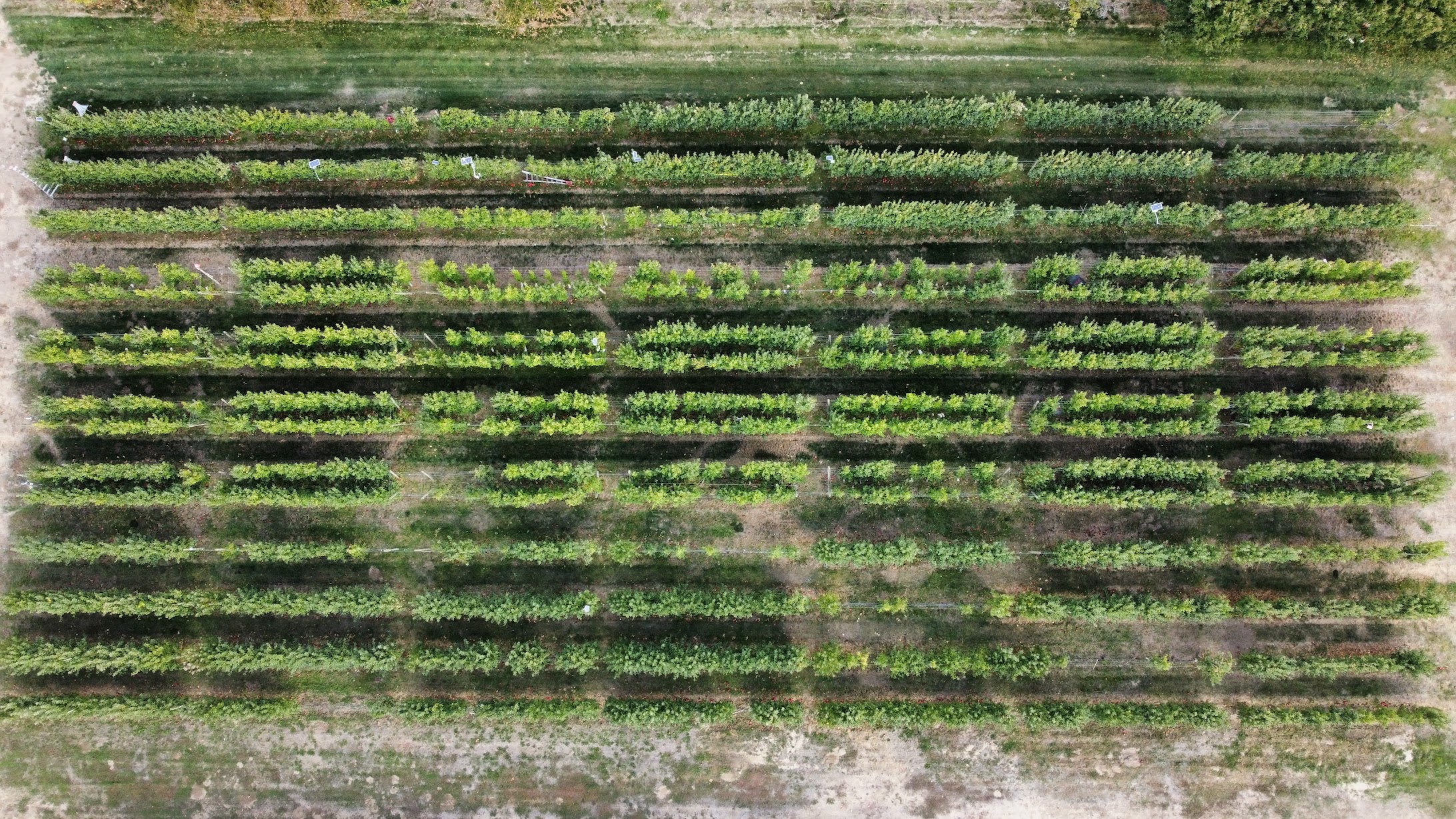
You are invited to participate in the AgAID Digital Agathon as part of an interdisciplinary team of students working on a challenge specific to water, labor, or farm operations intelligence.
The Digital AgAth0n
Graduate and undergraduate students with an interest in Computer Science and Agriculture are welcomed.
Using the resources and mentors we provide, you have an opportunity to explore what technology can do for agriculture.
Join us for ~48 hours to level up your AI and digital ag skillset and for the opportunity to win cash prizes sponsored by WSU CAHNRS, Department of Biological Systems Engineering, School of EECS, and CSANR! Also, great swag for in-person participants sponsored by Microsoft.
Timeline
- Registration EXTENDED to Friday, January 13, 2023
- Selected participants notified: January 17, 2023
- Teams will be assembled mid-January
- Digital Agathon Event: January 27-29, 2023
- Awards Ceremony: January 30, 2023
Eligibility
- Students enrolled at US-based Universities/Colleges from all years of undergraduate and graduate school are eligible to participate.
- Priority given to students affiliated with the AgAID Institute.
- Students with a range of computer science skills and agricultural interest or experience are encouraged to apply.
The Challenges
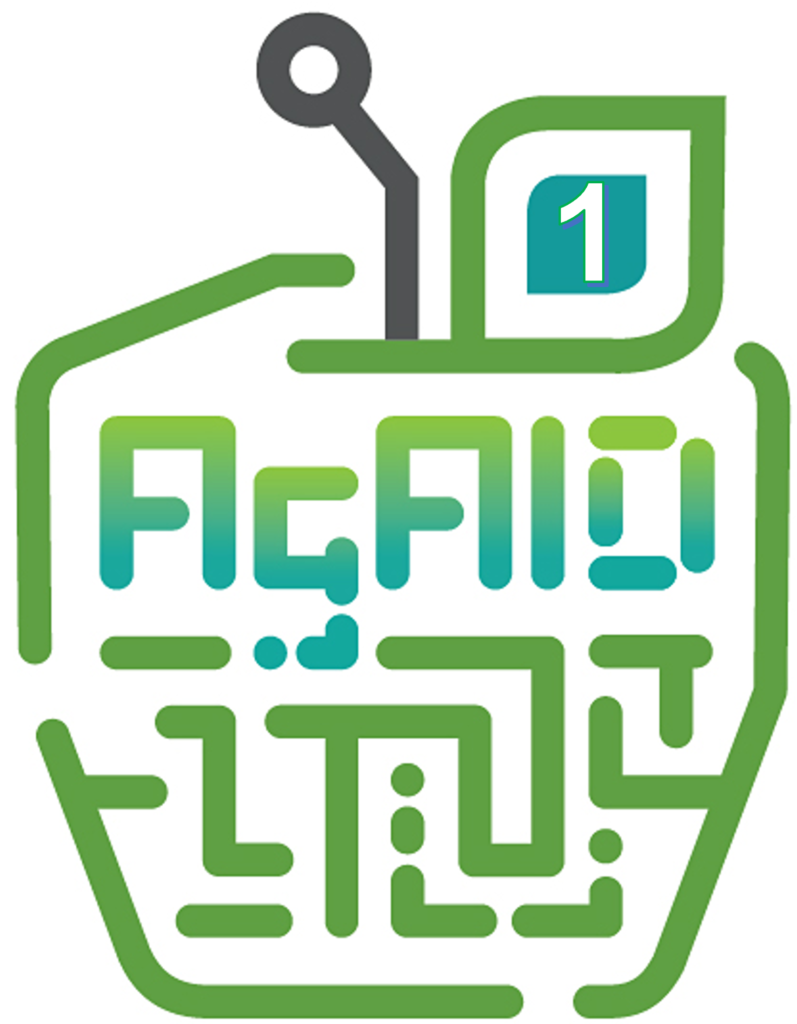
Computer Vision for Localizing and Counting Apples
Growing and harvesting tree fruits like apples require significant intellectual and physical labor. Growers must make many decisions throughout the process about orchard organization, pruning strategies, watering and fertilization schemes, blossom thinning, and harvest scheduling. Answering these questions ultimately relies on being able to accurately measure the impact of different choices over time by assessing fruit yield. However, measuring the number of apples grown in experimental plots can be a time-consuming and error-prone process during the fast-paced harvest season. Harvesting itself also requires significant human labor to remove fruits from trees efficiently and without damaging either the fruit or the trees themselves.
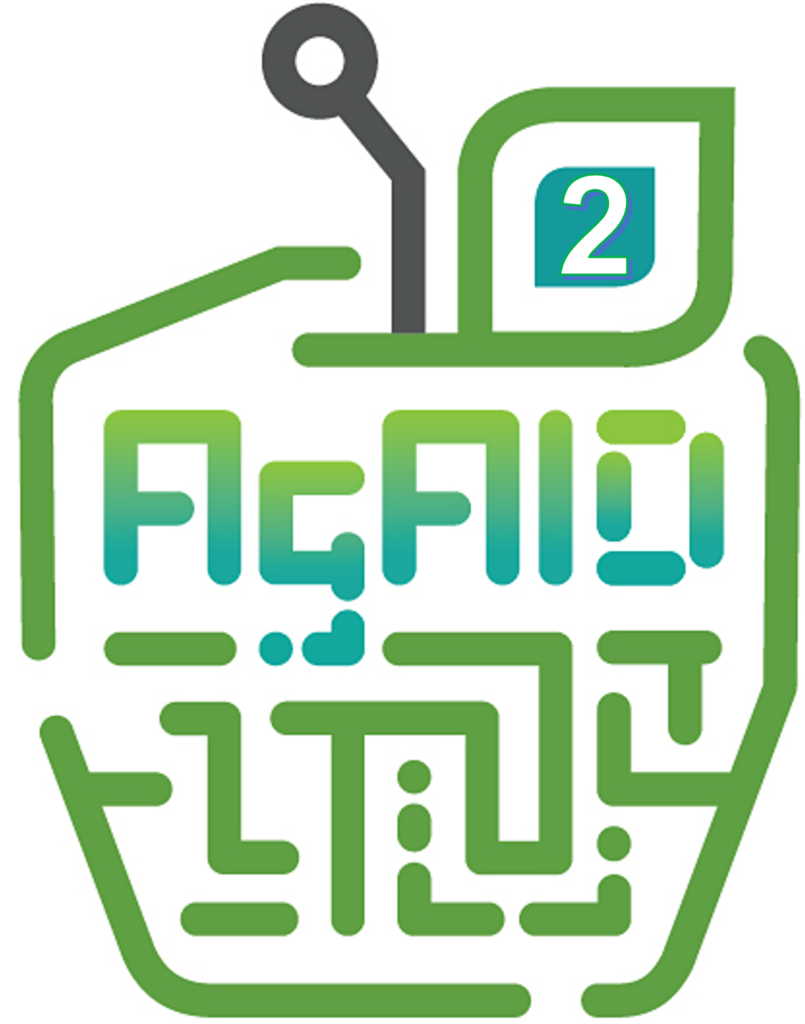
Forecast total cool-season precipitation for the Sacramento drainage basin in California
You will be developing and applying models to forecast cool-season (Nov-Mar) precipitation in California (in the Sacramento Basin) using existing geospatial data. The goal is to create novel approaches to enhance seasonal forecasting, which can in turn reduce risks to our water systems and help water managers efficiently manage hydrological regimes. Existing data include patterns of sea surface temperature, climate indices that represent atmospheric circulation regimes, soil moisture, and sea ice leading up to the forecast period. You will be developing models based on observations for the 1980-2022 period.
Frequently Asked Questions
Who will I be working with?
After you’ve registered, we will set up teams with a diversity of skill sets. Teams will have between 4-6 members. You may also assemble your own team (list teammate names on the registration form), sign up with a buddy, or you can fly solo and you’ll be teamed up with group of students who may be from one or more of the participating Universities.
Where is this happening?
This is a virtual event, but several Universities (WSU, OSU, and UC Merced) will host on-campus events during the hackathon with space to work, have snacks, pick up swag, and meet with mentors in person. You’ll be working on the Microsoft Teams platform to access our resources, seminars, and award ceremony.
What computer science background do I need to have?
Any student with a little bit of programming experience and a willingness to learn in teams is welcome to participate. Past experience with any of the programming languages (like Python, R, C/C++, etc.) and/or the use of AI/ML packages (like TensorFlow/PyTorch) will help but are not necessary. Familiarity with cloud computing platforms will be of further help but not a prerequisite. Prior experience working with geospatial data would be a benefit. We will balance teams with a diversity of skill sets.
What’s the purpose of this event?
Our hackathon is experiential learning, providing a deep dive into a topic: to learn about yourself, how you fit into a team, your skill sets, and provide an opportunity to learn about new skills that just might motivate you to learn more about artificial intelligence and/or agriculture!
Who owns the IP?
The AgAID Institute does not hold any rights to the IP. Please consult with your University’s Office of Commercialization for individual University policies and for any related IP questions.
What will happen during the Digital Agathon?
Starting mid-day on Friday, January 27th with a welcoming overview, we’ll provide near to 48 hours of round-the-clock mentorship support to help your team hack the challenge you select. Your solutions will be due Sunday afternoon. An awards ceremony will be held on Monday evening!
Winners
Labor Challenge
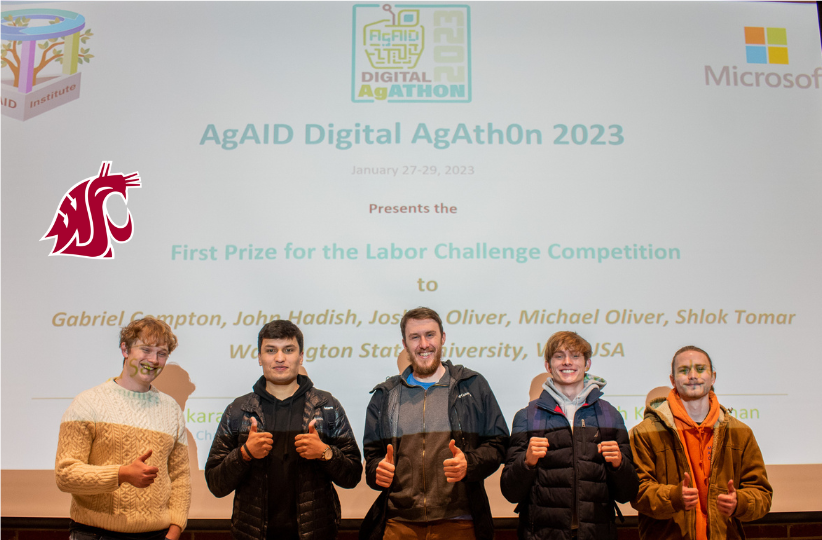
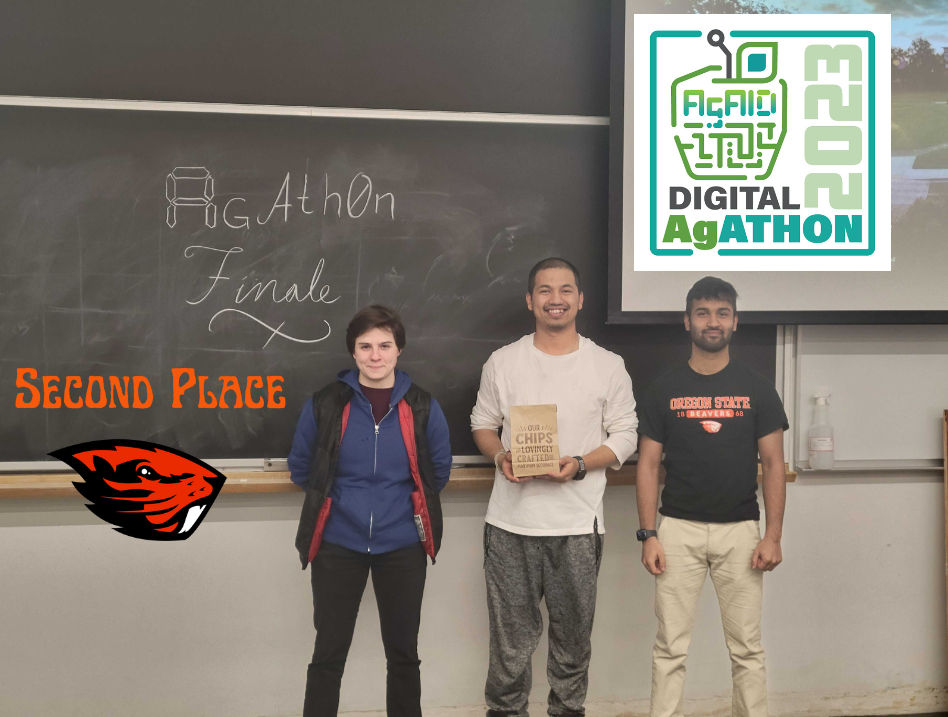
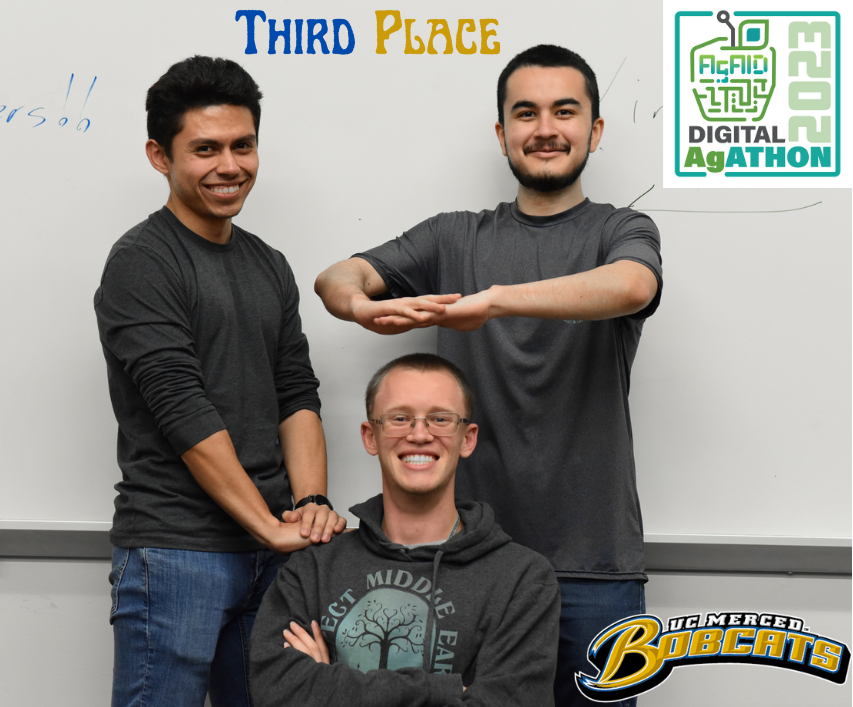
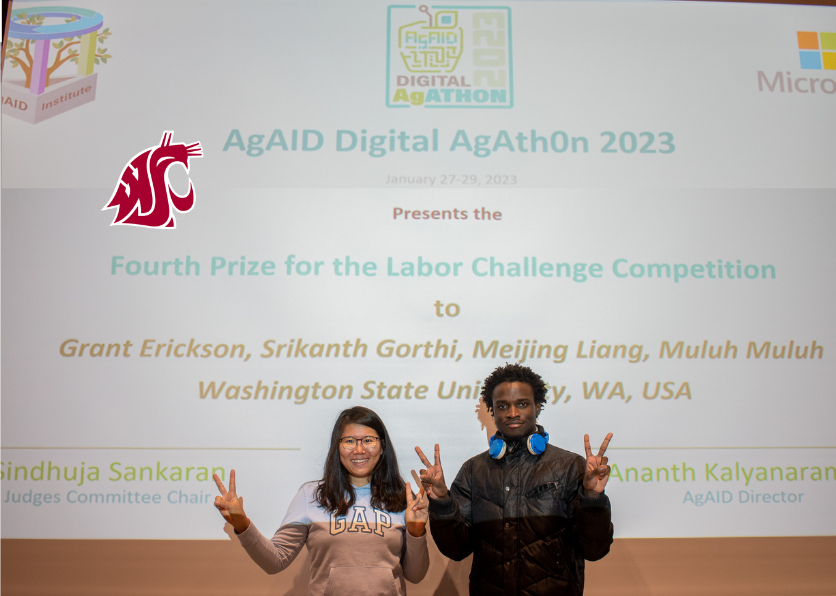
Water Challenge
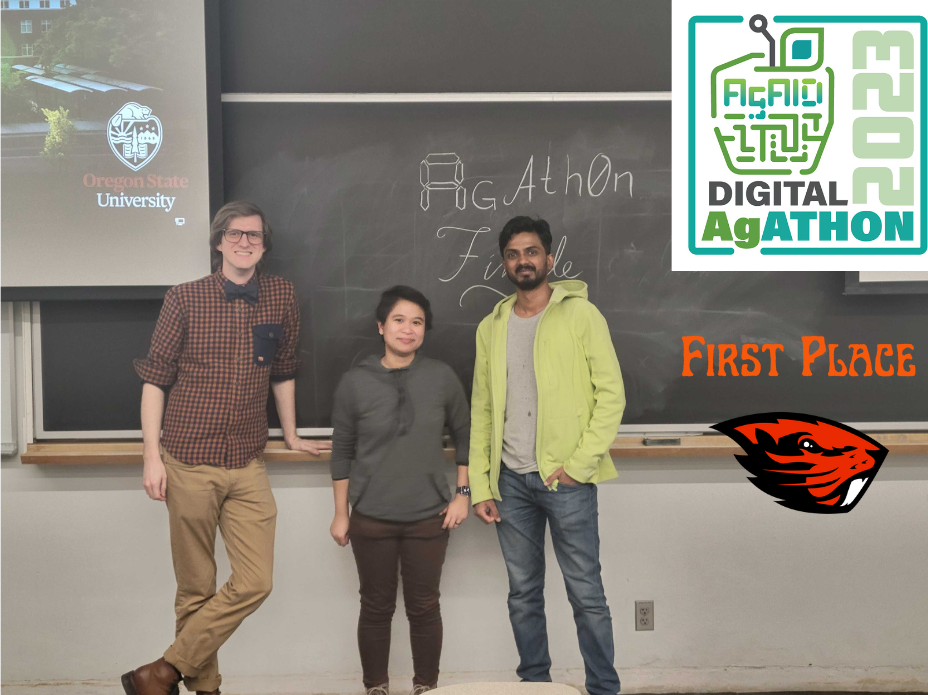
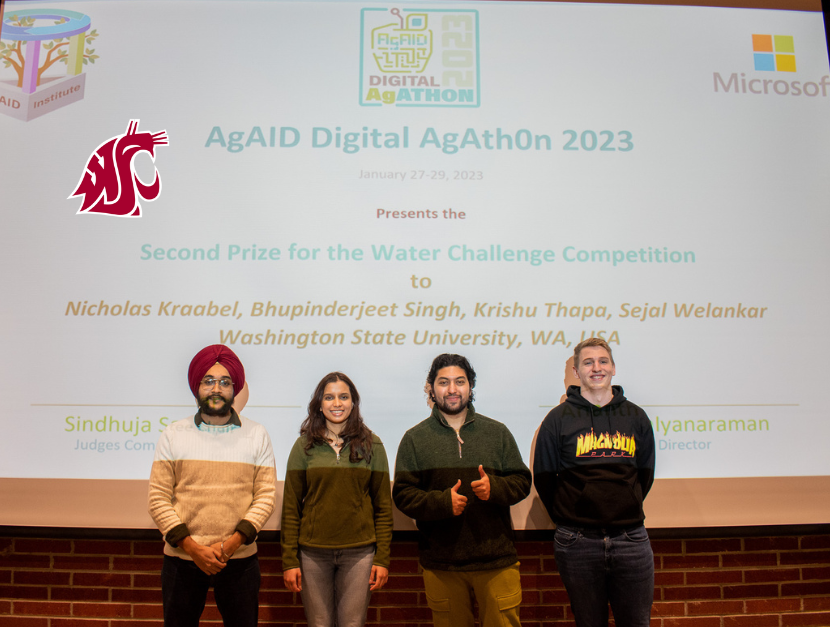
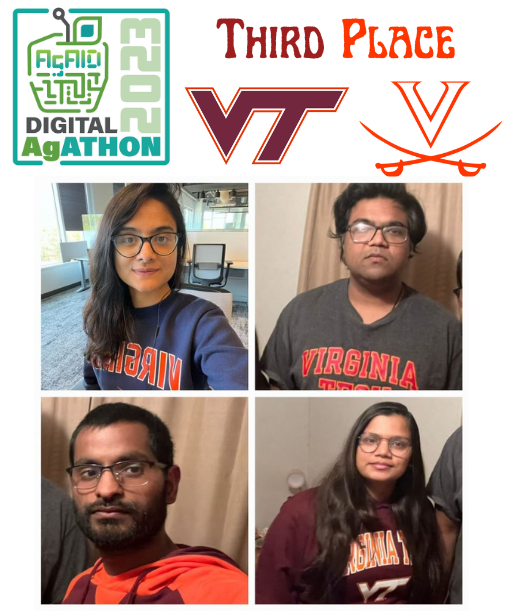
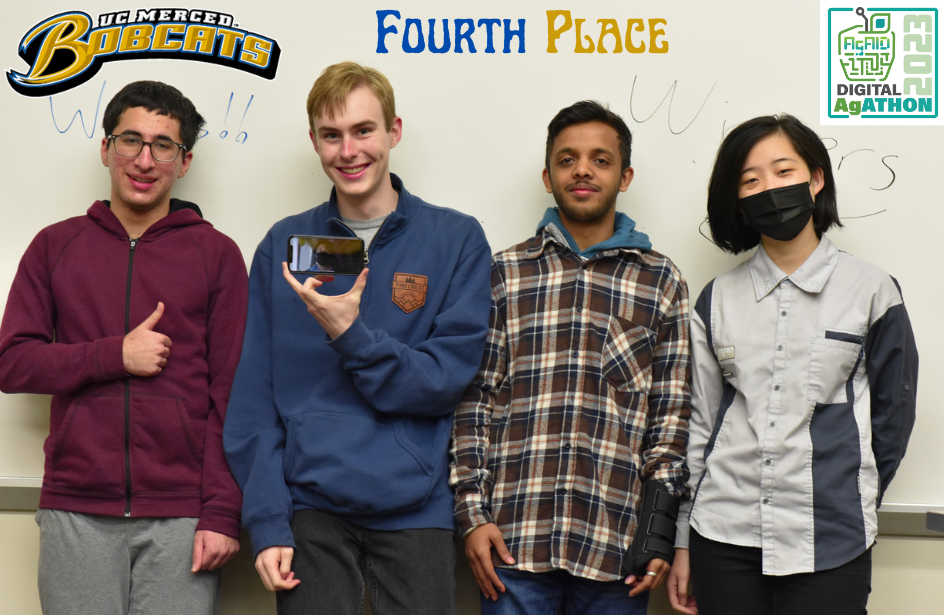
Brought to You by
